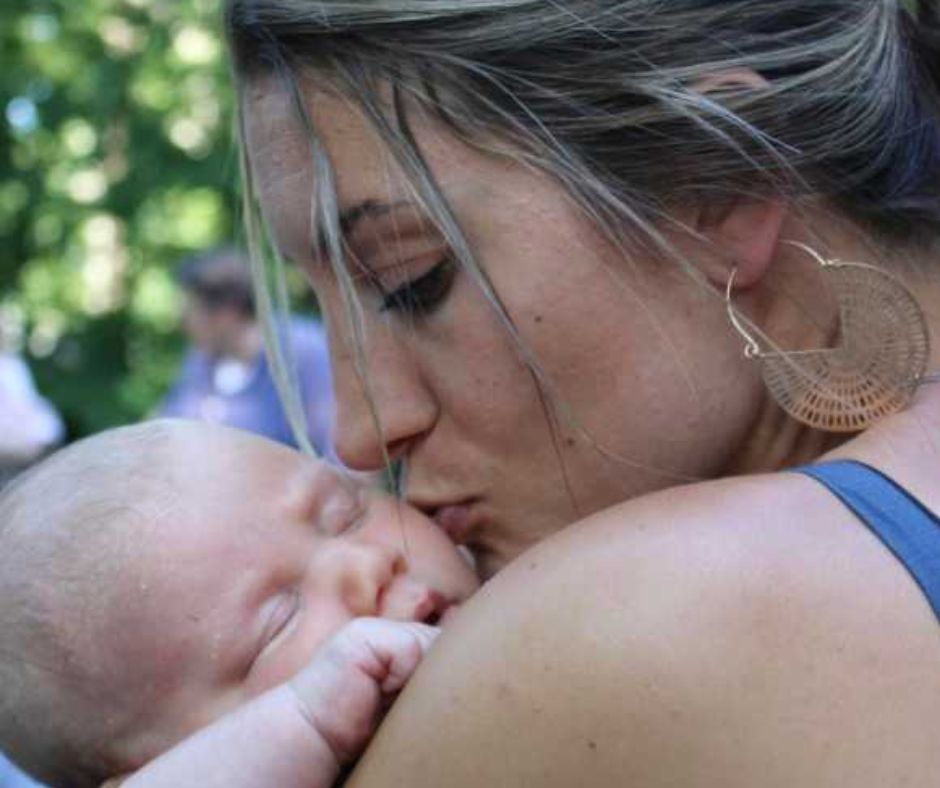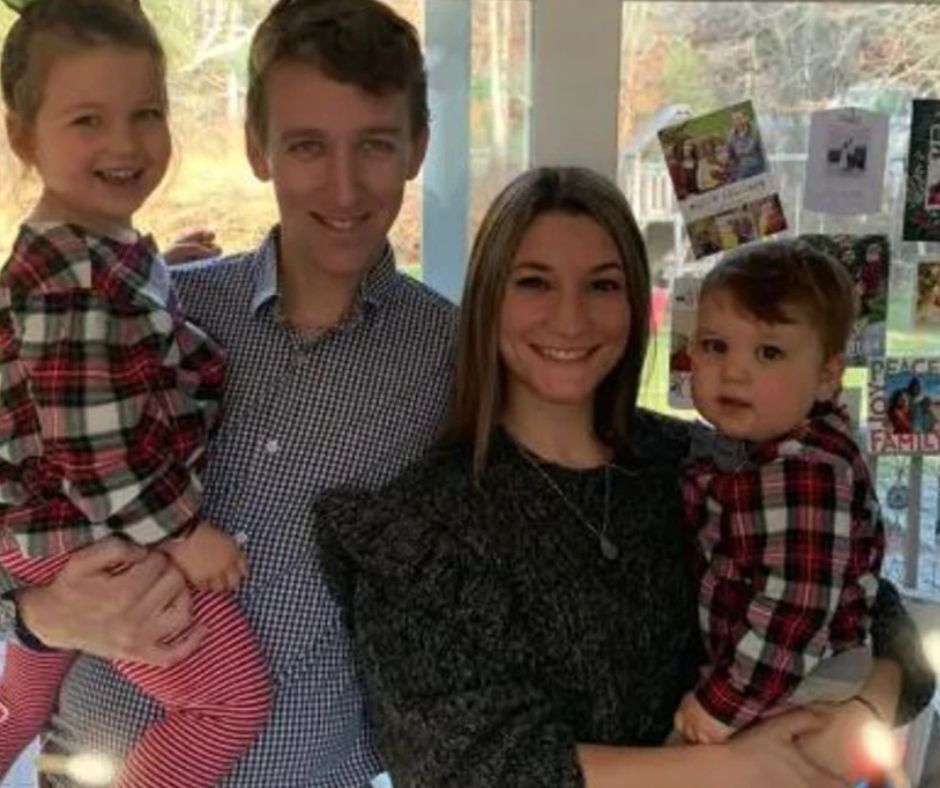

Postpartum Psychosis is something that everyone should be aware of.
With the story of Lindsay Clancy currently in the media spotlight, we felt that we should draw some more attention and raise awareness of postpartum psychosis. Too many new mothers are being let down by poor postnatal checks, and a huge lack of awareness of the signs until it is too late. Maternal mental health is a critical topic, as so many lives depend on a new mum being not only physically healthy, but mentally healthy and stable too.
*Warning - we'll be discussing the incredibly distressing story of Lindsay Clancy and her three children further down in this article.*
What is Postpartum Psychosis?
Postpartum psychosis is a very serious mental illness that can affect about 1 in 500 new mums after they give birth. It can be quite common to experience the 'baby blues' for a short period of time after giving birth, but postpartum psychosis is absolutely not the same thing and should be considered a medical emergency. You may see it interchangeably called puerperal psychosis or postnatal psychosis.
The signs and symptoms of Postpartum Pyschosis
The initial symptoms of postpartum pyschosis usually come on quite quickly during the first 2 weeks after giving birth. Sometimes, the signs may emerge within hours or days, and on more rare occasions they may emerge many weeks after the birth. The NHS has listed the signs and symptoms below;
- hallucinations - hearing, seeing, smelling or feeling things that are not there
- delusions – thoughts or beliefs that are unlikely to be true
- a manic mood – talking and thinking too much or too quickly, feeling "high" or "on top of the world"
- a low mood – showing signs of depression, being withdrawn or tearful, lacking energy, having
- a loss of appetite, anxiety, agitation or trouble sleeping
- sometimes a mixture of both a manic mood and a low mood - or rapidly changing moods
- loss of inhibitions
- feeling suspicious or fearful
- restlessness
- feeling very confused
- behaving in a way that's out of character
What should I do if myself or a new mum in my life is showing signs?
We cannot emphasise enough how important it is that this is treated as a medical emergency - get help as matter of urgency, as it can become worse very quickly and endanger the safety of mum and baby. It is worth mentioning that mums with PPP may not realise that they are unwell, and may deny that there is an issue, but if you see these signs in a new mother, please take action.
You should try to contact your GP immediately, with it being made clear that an urgent same day assessment is required. Your Health Visitor team may be able to signpost, as well as your midwife. 111 is another option. If there is already a mental health care plan in place due to there already being an identified risk of postpartum psychosis, call the crisis team.
If mum and/or baby are in imminent danger, you must call 999, if unable to get them to A&E.
The case of Lindsay Clancy
As we previously mentioned, a very sad and disturbing incident in the USA has hit the global media and it has only served to highlight just how misunderstood and undersupported maternal mental health is.
A 32 year old midwife from Massachusetts, Lindsay Clancy was the picture of motherhood; photos show her beaming with her children and husband, with glowing comments about her persona shared on the family Gofundme. Reports of her indicate that before her mental health breakdown with postpartum psychosis, her parenting was excellent and there were no reasons to worry - until the birth of her third baby, Callan.

Image credit: Clancy family
Her husband has shared that his wife's mental health had spiralled rapidly, and he was working from home to keep an eye on her and the children until he stepped out to the shops for 25 minutes on the 28th of January 2023. The scene he returned home to was one of horror, with his daughter Cora, 5, and 3 year old Dawson dead, and Lindsay injured after a suicide attempt. Baby Callan was unconscious and injured, and died days later in hospital.
Patrick Clancy has released a statement to the media asking the public to forgive his wife, who is facing very serious criminal charges.
"I want to ask all of you that you find it deep within yourselves to forgive Lindsay, as I have.
The real Lindsay was generously loving and caring towards everyone – me, our kids, family, friends, and her patients. The very fibres of her soul are loving. All I wish for her now is that she can somehow find peace.
My family was the best thing that ever happened to me. I took so much pride in being Lindsay’s husband and a dad to Cora, Dawson, and Callan. They gave me purpose and I never took it for granted. There is now a massive void where that purpose once was.
She loved being a nurse, but nothing matched her intense love for our kids and dedication to being a mother. It was all she ever wanted. Her passion taught me how to be a better father.”
We're waiting for more information to be released, but reports are suggesting that Lindsay was suffering from postpartum psychosis which begs the question; what medical support was she getting? What support was her husband getting to keep his wife and children safe? How seriously had her medical providers taken her postpartum mental health?
Parents in our online community group often share their concerns over their postpartum checks.
We have new parents from many countries around the world, and one of the most jarring issues shared seems to be the sudden drop in care quality once discharged, unless you have ongoing health issues. Too many of the mums in our online community have been asked four or five vague questions at their postpartum check, without any proper physical or mental health assessments. The appointment lasts for minutes, often with clear signs of postpartum depression or even the emergence of psychosis missed until things escalate. Like we mentioned earlier too, mums with postpartum psychosis are very often in denial that they are unwell, so if a doctor is simply asking, 'do you feel ok', of course, they will likely give a misleading answer. This is why knowing the signs as a friend, relative or caregiver is so vital!
Every time a mother is let down by service providers, regardless of the country, there are announcements of 'lessons learned' yet these heartbreaking cases continue to happen, and this quite simply is not good enough.

Image credit: Clancy family
We appreciate that cases involving an injury or death of a child at the hands of their parent or caregiver can be incredibly upsetting and contentious, especially when it comes to discussing punishment of someone who may be very unwell mentally. No matter your opinion on the topic, the topic of maternal mental health can no longer be brushed under the carpet or simply paid 'lip service', with real improvements few and far between, worldwide.
We send our love and deepest condolences to the Clancy family, and to every family affected similarly by postpartum depression and psychosis, and poor maternal mental health care.
Other articles...


.png)







